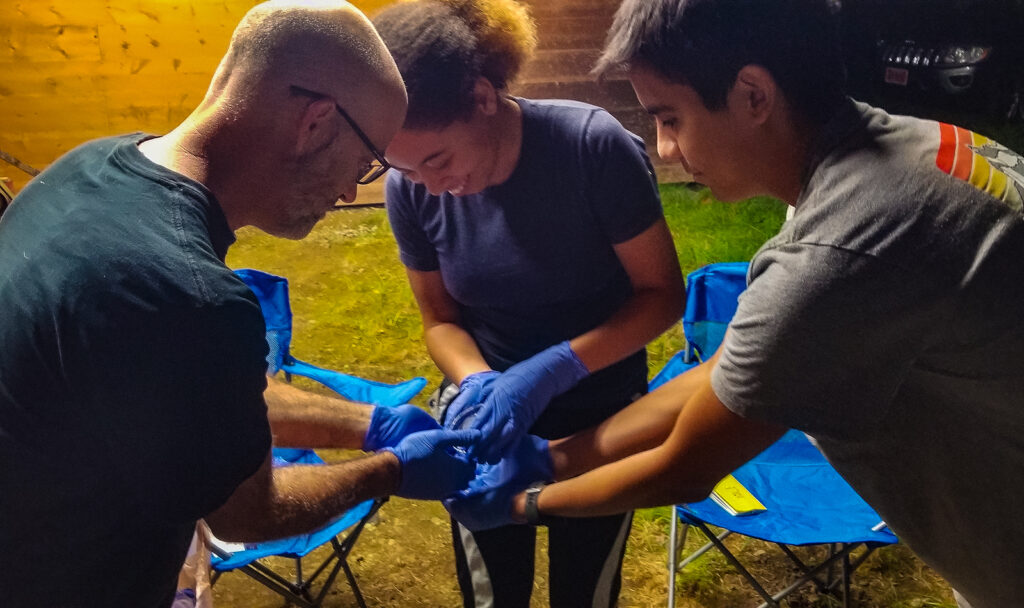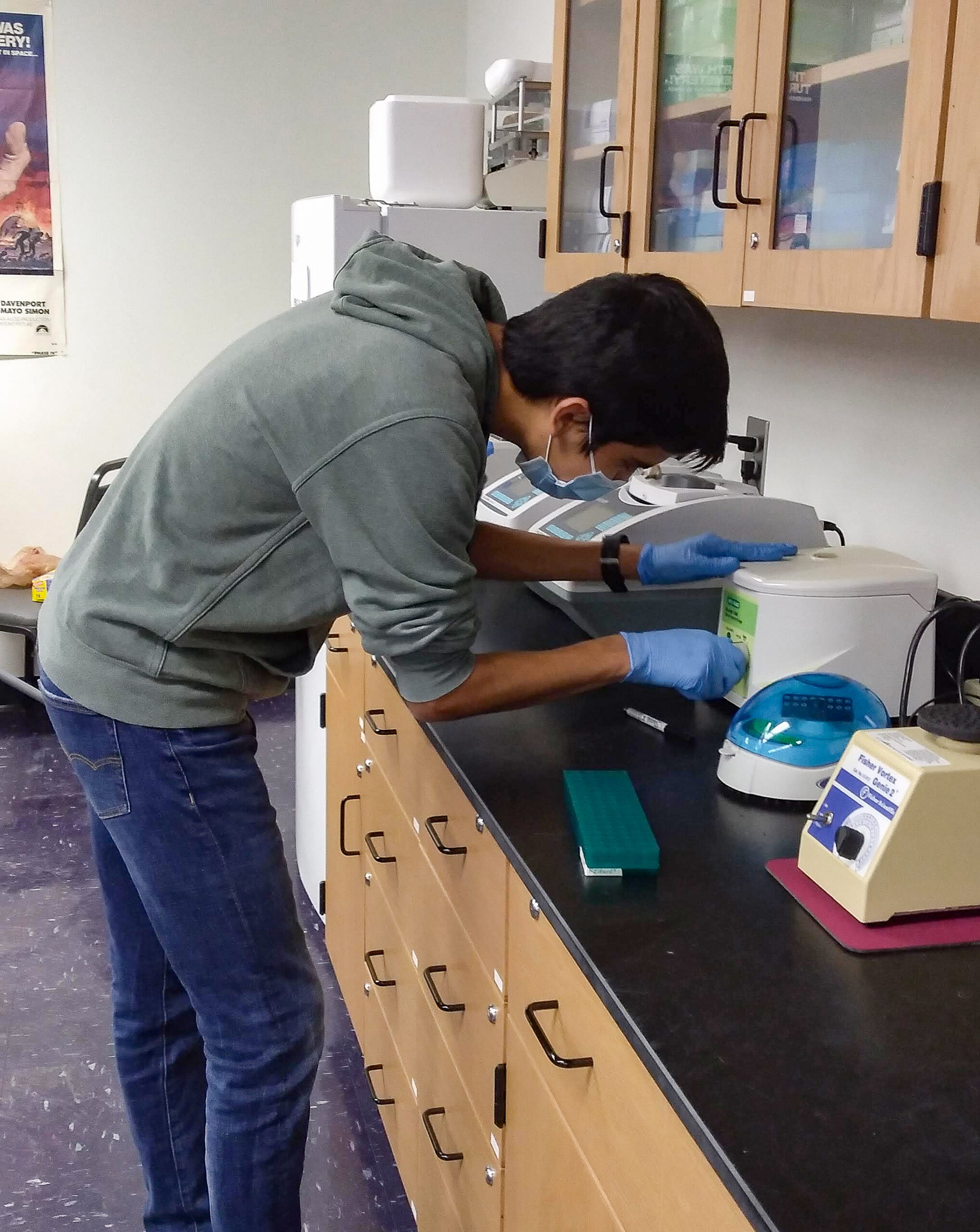
Pictured are (left to right) Zach Felix, associate professor of biology; Princess Flanders ’23, and Salvador Castillo ’23.
Junior biology majors Princess Flanders and Salvador Castillo have been getting up close and personal with salamanders, studying the microbes, or bacteria, found on their skin.
Just like humans, salamanders are born with certain bacteria on their skin. “Microbes are an important part of the immune system of these salamanders because they act to keep harmful bacteria out of their system,” says Zach Felix, associate professor of biology at Reinhardt.
Using the same method to obtain microbe samples, Flanders and Castillo are seeking answers to different questions. Flanders wants to know if salamanders kept or bred in captivity have different microbes than salamanders in the wild. “By comparing the wild salamanders with their captive cousins, we will be able to see if the ones in captivity maintain healthy levels of the friendly microbes. If there are issues uncovered, this may affect zoos and their ability to release captive bred animals into the wild. Strategies could be devised to mitigate these issues,” says Felix.

Salvador Castillo ’23 operating a centrifuge during lab work at Piedmont University in December 2021.
Castillo is working to learn whether habitat or genetics plays a more important role in determining what microbes are found on the salamanders. “There’s a lot we don’t know about where salamanders get their bacteria,” says Castillo. “This is testing to see whether the environment or salamander species plays a bigger role. Determining which microbes are species-specific versus which ones they pick from the environment can help us learn how to better alleviate infections by harmful fungi and bacteria.”
Castillo is studying salamanders collected at the Flint Farm near Reinhardt’s campus for his research, while both the captive and wild salamanders for Flanders’s research are from the Charles H. Wharton Conservation Center in Tate City, Ga. The students, assisted by Robert Hill, associate curator of herpetology at Zoo Atlanta, and Keith Ray, instructor of biology traveled to the Conservation Center in October 2021 to get microbe samples from salamanders for Flanders’s research.
Ray notes that, “There were so many different salamanders around us that we had to watch where we were stepping. I’ve never been anywhere like it – it was amazing.”
Both Flanders and Castillo are S-STEM Pathways Scholars at Reinhardt, which comes from the National Science Foundation (NSF). These scholars receive money towards tuition, a computer, a mentor and career guidance. They also receive funds to pursue a research project of their choice and are able to present their findings at scientific meetings. “This is a unique opportunity offered here in the Reinhardt Biology program,” says Felix.
Flanders and Castillo will continue to work on their research and anticipate completing their projects by the end of summer 2022. In fact, they both presented their findings recently at the Georgia Academy of Science meeting at Valdosta State University. “Biology is a huge field with so many subfields that this type of exposure is invaluable,” says Felix. In addition to Hill, Flanders and Castillo have been aided by others outside of Reinhardt: Dr. Jessica Wooten, a professor from Piedmont University assisted with project planning and conceptualizing, as well as laboratory work, and Tim Herman, owner of Indoor Ecosystems swabbed the captive salamanders needed for Flanders’s project. “Collaborations like these are invaluable to continuing research projects this complex” says Ray. “We rely on help from colleagues across several fields and our students gain so much from their expertise.”

